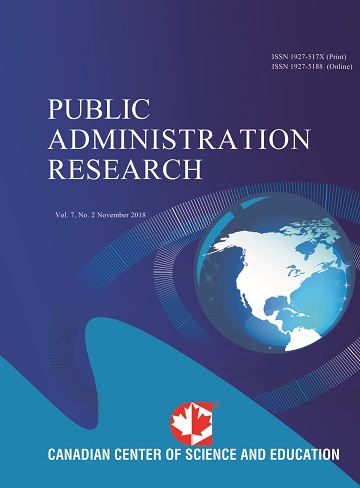Scale for Measuring Perceived Service Quality of Public Service in Sri Lanka: With Special Reference to Divisional Secretariats in Gampaha District
- A.T. Wijesekera
- R. Lalitha S. Fernando
Abstract
The most accepted SERVQUAL is heavily applied to measure the service quality of Business to Customer (B2C) profit oriented organizations than for non-profit organizations. As such, this paper describes the development of a 19-item instrument for assessing customer perceptions of service quality in public service with special reference to Divisional Secretariats in Sri Lanka. To do so, both qualitative and quantitative methods were utilized in three fundamental stages recommended by Churchill (1979) and Parasuraman et.al, (1988). In following their footsteps, initially a qualitative research was undertaken in five Divisional Secretariats within Gampaha District through interviews with 50 customers from different backgrounds and affiliations which produced 42-items with eight factors emerged. These 42-items were included in a questionnaire and quantitative study was undertaken with 100 respondents who were current or recent customers of Divisional Secretariats within Gampatha District. To ensure the reliability and validity of the measures of service quality construct, mainly reliability test, split-half reliability and factor analysis, were used. Finally, 42-items were deduced in to 19-items and a new scale was developed to measure the service quality of Divisional Secretariats with 5 dimensions Responsiveness, Communication, Tangible, Empathy and Assurance. Among these, responsiveness dimensions could be the least important and the empathy dimension was of most concern to customers. As a closing note, limitations and further studies were discussed.- Full Text:
 PDF
PDF
- DOI:10.5539/par.v6n2p1
Journal Metrics
h-index (2017): 7
i10-index (2017): 6
h5-index (2017): 7
h5-median (2017): 13
Index
- COPAC
- CrossRef
- DTU Library
- EBSCOhost
- EuroPub Database
- Excellence in Research for Australia (ERA)
- Genamics JournalSeek
- Ghent University Library
- Google Scholar
- Harvard Library
- Infotrieve
- Jisc Library Hub Discover
- LOCKSS
- Mir@bel
- Norwegian Centre for Research Data (NSD)
- Open J-Gate
- PKP Open Archives Harvester
- Publons
- ROAD
- Scilit
- SHERPA/RoMEO
- Stanford Libraries
- Ulrich's
- UniCat
- Universe Digital Library
- UoS Library
- WorldCat
Contact
- Gabriel TaiEditorial Assistant
- par@ccsenet.org
